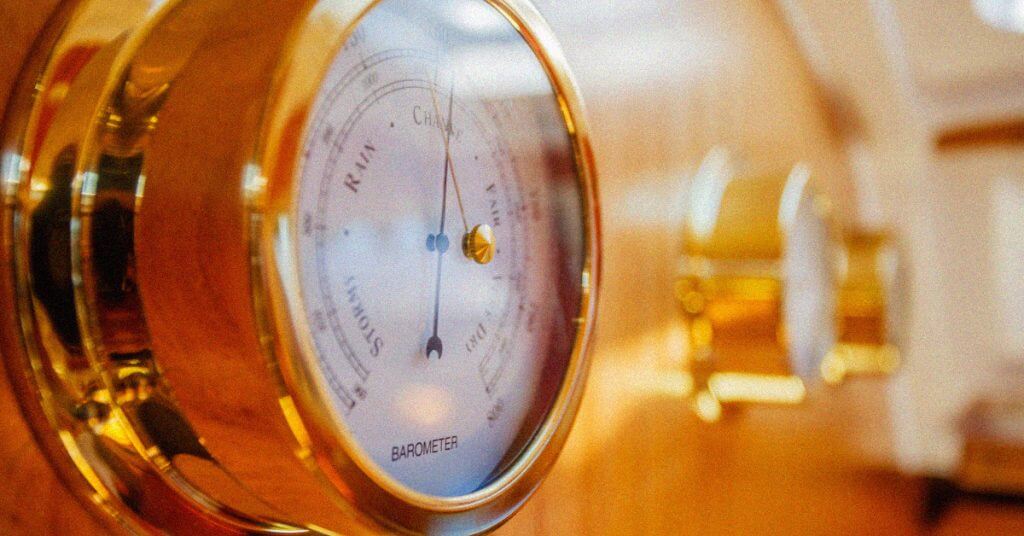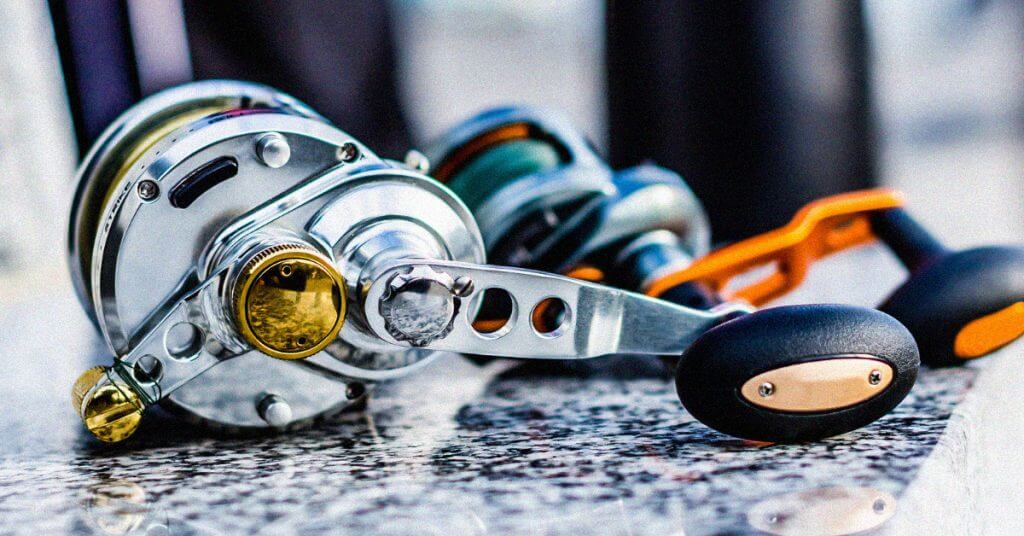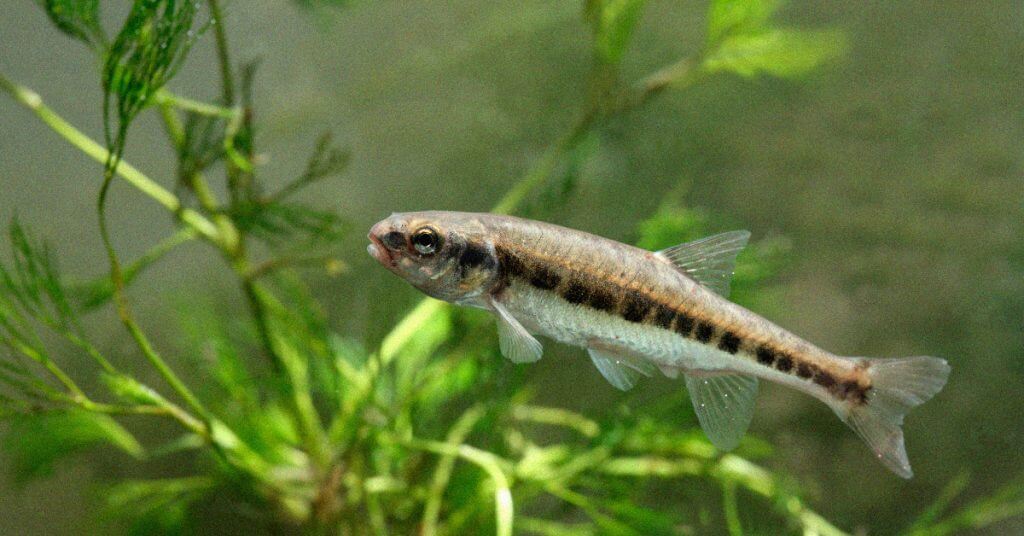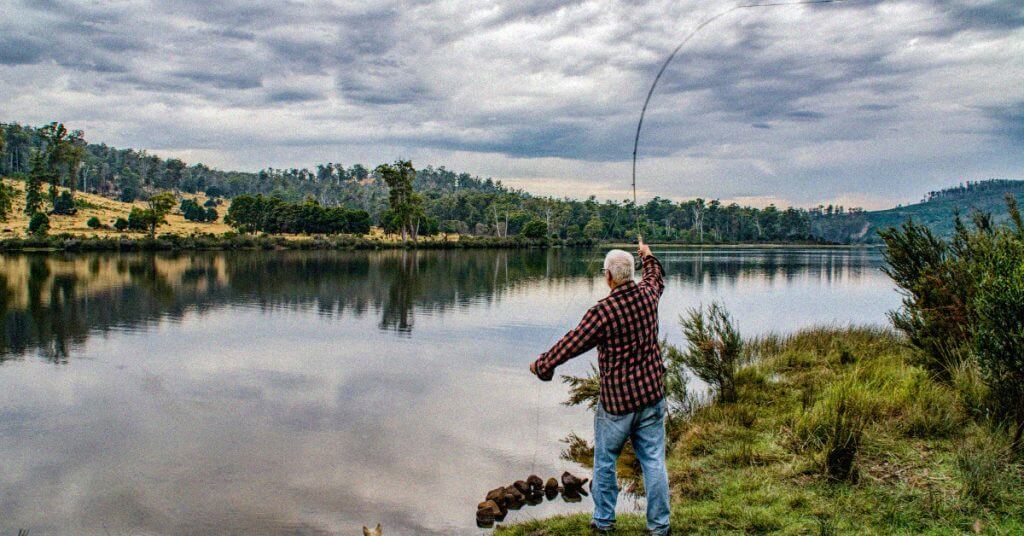There are numerous weather conditions that can plague anglers like rain, heat, and snow, but perhaps none have more of an impact than wind.
Growing up I’ve always tried to fish on days forecasted to have light winds, but as I grow older I am learning more about how to use wind to catch fish.
Sure, fishing in the wind can be aggravating and create problems while on the water, but the benefits far outweigh the aggravation of fighting the wind when you fish.
In this article, I’m going to give fishing tips on how you can deal with windy conditions while fishing. I’ll also show how you can use the wind to your advantage on your next fishing trip.
In the YouTube video above, Wes Littlefield, the content creator for Anglers.com, shows how to fish in the wind.
Table of Contents
Working With the Wind: Tips and Techniques
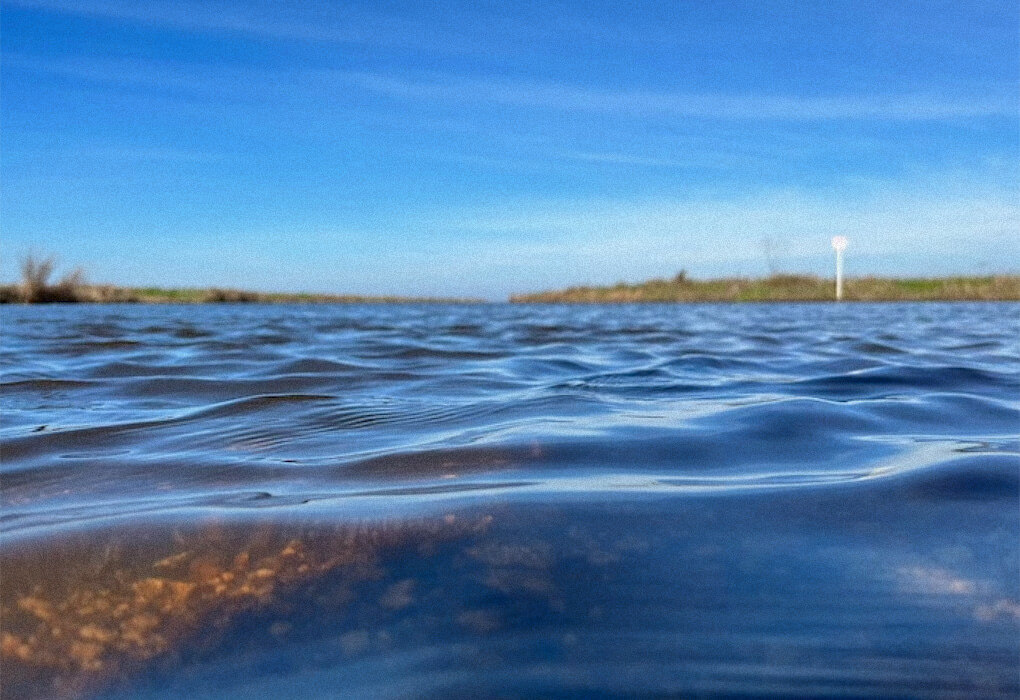
So, how does wind affect fishing?
The number one reason why fishing in the wind can help you catch more fish is that it stirs everything up including plankton, algae and microparticles.
This is where the food chain begins. The debris attracts small bait fish that feed on the particles.
Have you ever scanned the surface of the water along the bank that had wind blowing into it? If so, you may have noticed pollen, dust, and various debris on the surface.
While it may not look pleasant to you, all that debris attracts small minnows and shiners that feed on it. That leads me to one of my golden rules for fishing and that is – if you find the bait, you’ll find the fish!
Best Wind for Fishing
When posed with the question: what is the best wind direction for fishing?
My answer is simply: it depends on what area you are fishing! Below are a few fishing situations and what the best winds are to fishing them.
Wind Blown Bank
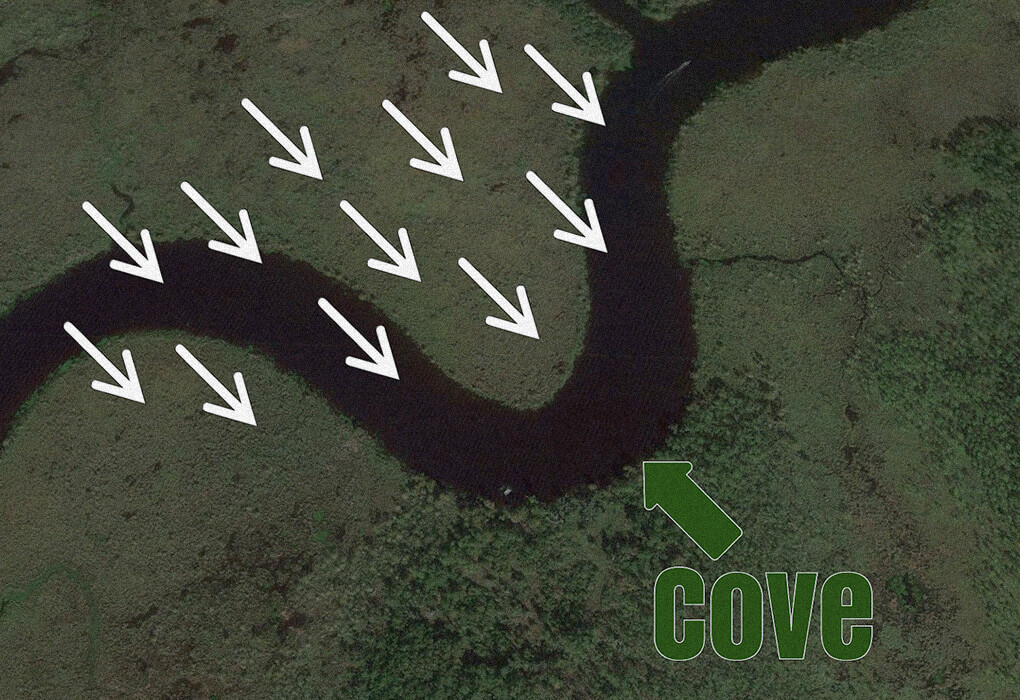
First off, the shoreline that the wind is blowing into is always better. This is referred to as a “wind blown bank.” The best areas to fish are going to be coves where the debris and baitfish can collect.
My favorite lure to use along a wind-blown bank is a spinnerbait reeled in the middle section of the water column.
Drains
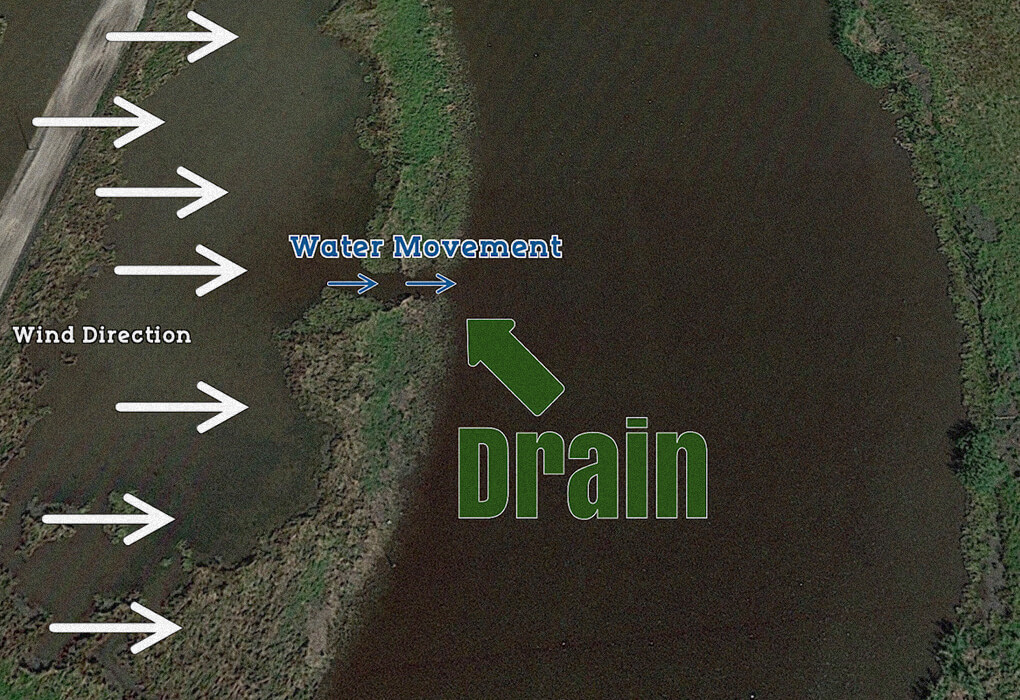
If you are fishing an area of water that has a small creek or drain flowing into it. You want the wind to be blowing water out of the ditch and into the main body of water.
This forces the baitfish out of the secure shallow water and into the river or reservoir where the bigger fish are often waiting for them to swim out.
The current moving through these drains can be very strong leaving the smaller minnow helpless. The smaller fish struggle to swim in the strong current while the bigger fish are able to swim through it because of their size.
These drains create a handicap for big fish that are ambushing the bait fish. Some of my best bass fishing trips have come from fishing drains using jigs on the bottom.
Points
Another thing to look for are points where the land sticks out into the water.
A point serves as an ambush zone for fish.
They often wait along one side of the point and as the wind blows water around the point, they ambush all the small minnows and bait fish that get swept up in the current.
I’ve found that the most productive lure for bass fishing wind blown points is a swimbait because they mimic baitfish in the current.
Fishing Against the Wind
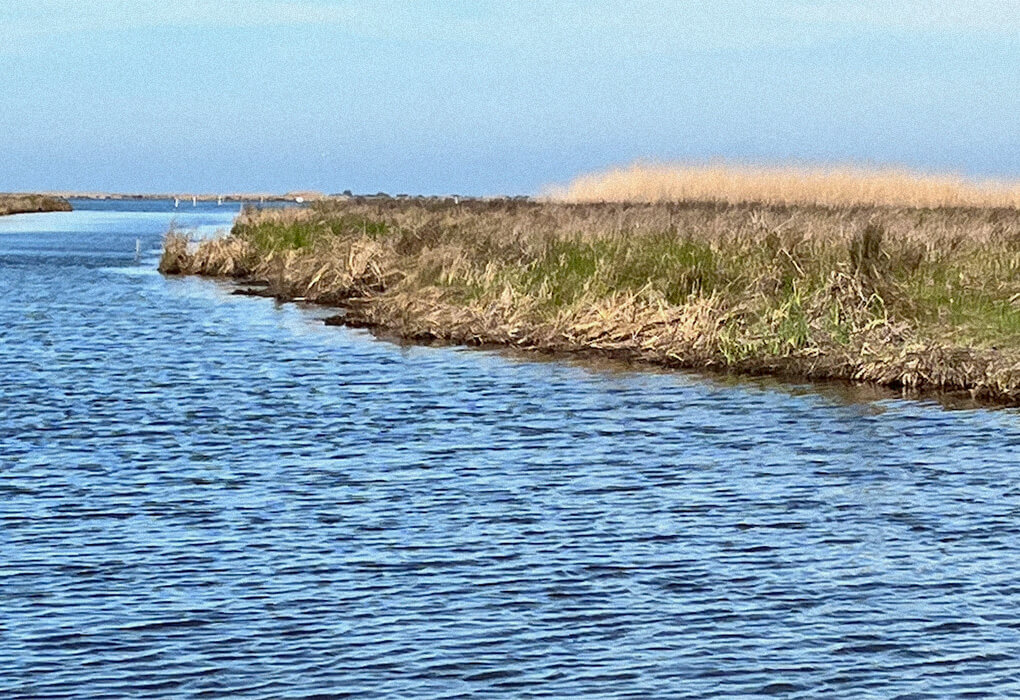
Fishing against the wind pretty much is exactly how it sounds. Oftentimes, strong gusts can cut your casting distance in half. This will limit the area that you can fish.
If you are fishing with a cork, fishing against the wind can pose problems. When you cast out your line, the wind will blow your cork back towards you, limiting the time that the cork sits in the targeted zone.
Also, fly fishing can be nearly impossible when fishing into the wind. Fly fishing line is thick and isn’t made for casting against the wind.
Fishing With the Wind
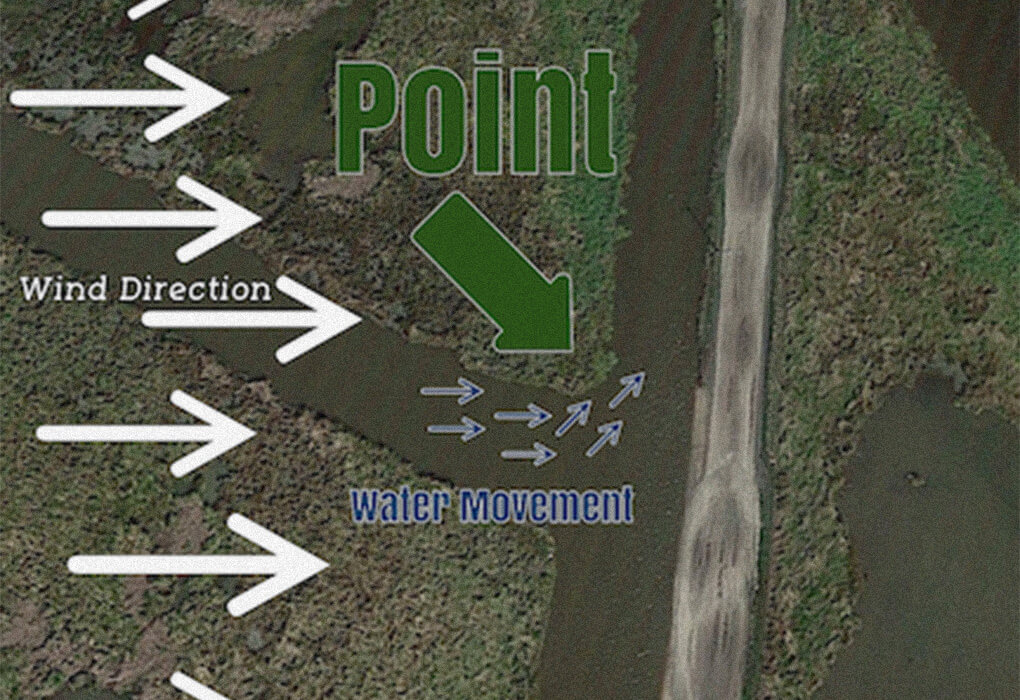
There’s plenty of benefits to fishing with the wind. The great thing about casting with the wind is that your casts go farther. This allows you to fish more water.
If you’re fishing with a cork, try flipping the bail open and letting more line out after the cork hits the water. The wind will blow your cork while it’s floating allowing you to fish twice as far away.
Tools to Help Deal with the Wind
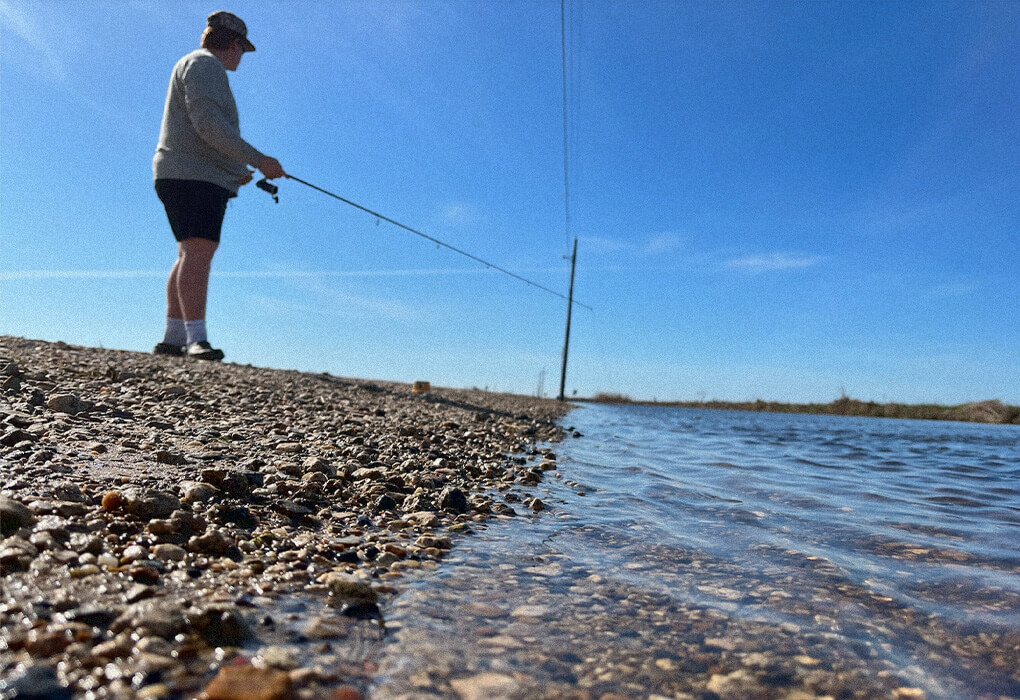
While wind can hamper anglers, there are tools to help deal with high winds. Anchors, pole anchors, and trolling motors are often invaluable tools to anglers who are fishing in the wind.
With technology advancing like it has recently there are now trolling motors that have a GPS enabled “spot lock” feature which allows anglers to press a button and the motor locks in on that particular fishing spot and keeps the boat in the same position.
Frequently Asked Questions
How windy is too windy for fishing?
Anything higher than 20-mph on a boat is considered dangerous. Fishing from land or from a boat in protected waters, you should be able to fish in winds up to 30 mph.
Is it better to fish against the wind or with the wind?
There are far more advantages to fishing with the wind.
Can you fish in 12-mph winds?
Fishing in 12-mph winds is definitely manageable in protected water where there are trees to break up the wind.
I actually prefer winds over 10-mph and believe those are the best winds for fishing because the stronger winds tend to stir up baitfish making the fish more active.
Conclusion
While wind is oftentimes inevitable, making small adjustments and knowing what areas to fish can help you understand how fish react to wind direction and speed.
As the years go by and I learn more about using windy conditions to my benefit, I have learned to embrace fishing in the wind because I know what areas the fish move to as a result of the conditions.

